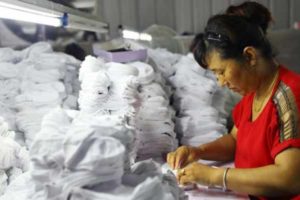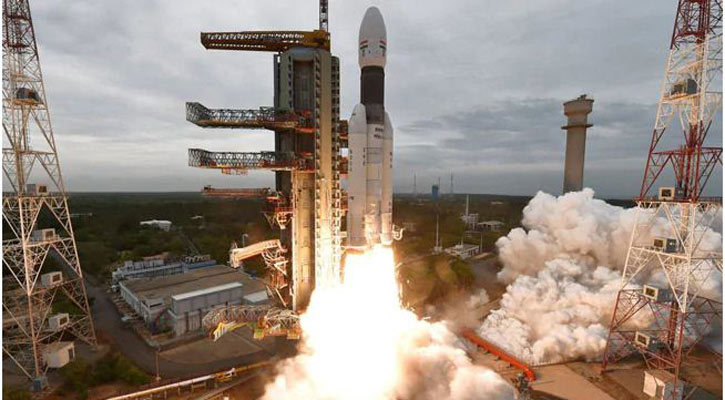The COVID-19 pandemic is set to nearly double the number of people facing starvation this year, but preparing better would help battle such crises in the future, said an official at the World Food Programme, after it won the Nobel Peace Prize on Friday.
As the UN food aid agency was rewarded for its efforts to fight hunger and improve conditions for peace in conflict-affected areas, Gernot Laganda said the coronavirus shock had made clear aid cannot keep pace with multiplying threats.
“You won’t get to zero hunger with humanitarian aid alone,” said Laganda, head of climate and disaster risk reduction for the World Food Programme (WFP).
“You need two parallel lanes of work: responding to extreme events and helping governments build systems that can manage risks,” he told the Thomson Reuters Foundation.
As COVID-19 has tested countries’ ability to deal with stresses “like never before”, growing knowledge of the gaps “is equally relevant in managing the climate emergency”, he noted.
Today, as hunger grows despite a global goal to eliminate it by 2030, WFP spends about 80% of its money responding to urgent crises in places from Afghanistan to East Africa, Laganda said.
But as worsening extreme weather linked to climate change – and threats like the pandemic and conflict – push more people into hunger, the gap between what the agency can raise in donations and what it needs to spend is widening, he added.
That is a problem likely to worsen as an economic downturn provoked by the pandemic tightens aid budgets around the globe.
“Even with the prize now, whether we can fill this gap is a question,” Laganda said in a telephone interview.
At the award announcement, Berit Reiss-Andersen, chairwoman of the Norwegian Nobel Committee, called on the international community to adequately fund the food aid agency.
“This is an obligation, in our minds, of all states of the world, to ensure that people are not starving,” she said.
PREPARING FOR DISASTER
To help close the funding gap, reduce suffering and get help to people quicker, WFP has invested in efforts to curb risks, through measures ranging from better early warning systems to insurance policies and social safety nets.
In Bangladesh, hit this year by floods that covered a quarter of the country, early warning systems provided four-day notice of the coming deluge, WFP’s Laganda said.
That triggered “anticipatory” payouts – cash delivered via mobile phones through a social safety net programme – that gave 20,000 families resources to move their valuables out of harm’s way.
WFP, which helped set up the government systems through which it delivered the support, said experts had documented that each dollar of such spending can save $3 in humanitarian aid, as well as disruption and losses for families, Laganda said.
Similarly, in drought-hit countries such as Zimbabwe and Mauritania, WFP is supporting insurance policies that provide quick payouts – four to six months faster than humanitarian aid usually arrives – when rains and crops fail, he said.
Early assistance helps cash-short farmers avoid selling the oxen they need to replant fields next year or cutting down rain-regulating trees to sell as firewood – measures that can push them into a downward spiral, Laganda said.
Reiss-Andersen of the Nobel Committee said tackling hunger means “not only providing food – it’s about creating sustainable communities where the food production … can support (their) people”.
“If (lack of) food is the reason for war and conflict, creating food-secure communities also creates safer communities who are less prone to conflict,” she said, as the global prize was announced on Friday.
BREAKING HUNGER CYCLE
Laganda noted one big problem is that people who become reliant on humanitarian aid – often after crops fail, jobs and remittances dry up and all their assets are sold – usually struggle to survive again without it.
Programmes like providing food vouchers or cash for people who work planting trees, digging ponds or restoring degraded farmland often last only through the disaster period, he noted.
To help break the cycle, humanitarian spending should be combined with development aid to tackle poverty and build resilience longer-term, he said.
Laganda also warned that while wealthier countries have so far avoided the worst of the hunger, conflict and climate crises affecting the rest of the world, they are not immune from shocks, as the coronavirus pandemic has made clear.
From US wildfires and unprecedented heat to a string of destructive hurricanes, climate pressures “are knocking on everyone’s door”, he said.
Sara Pantuliano, head of the London-based Overseas Development Institute, said the Nobel award to WFP should reinforce “the importance of looking at the longer-term impact of a number of crises – the pandemic being one, but also… climate change and other global pressures”.
Giving the prize to a UN agency could be seen as a push-back against nationalistic responses to international threats, she said.
“Hopefully this is a moment that will focus minds to think how we need to reshape global cooperation,” with an emphasis on broader alliances with business and civil society, she added.
“We cannot address global crises in isolation.”





















